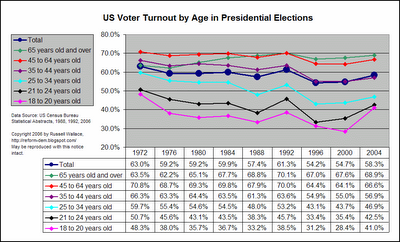"The Democratic Party can burn in hell for all I care. I think the Democratic Party is the enemy of democracy in America, and that no good can come realistically from within the Democratic Party." - Bill Lueders, Isthmus News Editor (Isthmus is a respected Madison weekly paper) Quote from the Capital Times, 10/23/06.
Judging by his comments you might think Bill Lueders is a Limbaugh lovin' Bush backin' rabid right-wing loony. But you'd be wrong. Quite the opposite.
Sadly, I think Bill is going to be waiting a mighty long time for the great third party messiah to arise and carry him off to the ideological promised land. But at least his faith in political miracles gives him a convenient excuse not to try to reform the Democratic party, and to disparage those who do.
Judging by his comments you might think Bill Lueders is a Limbaugh lovin' Bush backin' rabid right-wing loony. But you'd be wrong. Quite the opposite.
Sadly, I think Bill is going to be waiting a mighty long time for the great third party messiah to arise and carry him off to the ideological promised land. But at least his faith in political miracles gives him a convenient excuse not to try to reform the Democratic party, and to disparage those who do.



